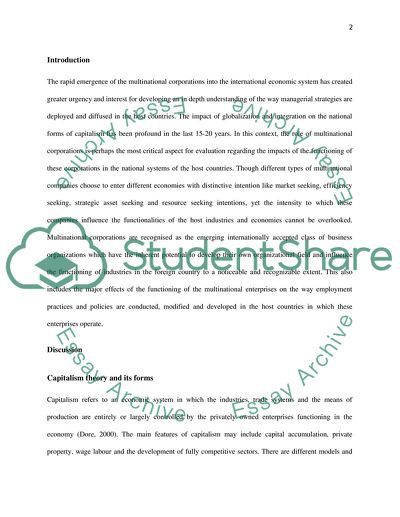Cite this document
(“The Expansion of Multi-National Corporations in the UK Essay”, n.d.)
The Expansion of Multi-National Corporations in the UK Essay. Retrieved from https://studentshare.org/human-resources/1695162-discuss-the-expansion-of-multi-national-corporations-in-the-uk-what-effect-has-this-had-if-any-on-british-hr-practices-please-refer-to-varieties-of-capitalism-theory-in-your-answer
The Expansion of Multi-National Corporations in the UK Essay. Retrieved from https://studentshare.org/human-resources/1695162-discuss-the-expansion-of-multi-national-corporations-in-the-uk-what-effect-has-this-had-if-any-on-british-hr-practices-please-refer-to-varieties-of-capitalism-theory-in-your-answer
(The Expansion of Multi-National Corporations in the UK Essay)
The Expansion of Multi-National Corporations in the UK Essay. https://studentshare.org/human-resources/1695162-discuss-the-expansion-of-multi-national-corporations-in-the-uk-what-effect-has-this-had-if-any-on-british-hr-practices-please-refer-to-varieties-of-capitalism-theory-in-your-answer.
The Expansion of Multi-National Corporations in the UK Essay. https://studentshare.org/human-resources/1695162-discuss-the-expansion-of-multi-national-corporations-in-the-uk-what-effect-has-this-had-if-any-on-british-hr-practices-please-refer-to-varieties-of-capitalism-theory-in-your-answer.
“The Expansion of Multi-National Corporations in the UK Essay”, n.d. https://studentshare.org/human-resources/1695162-discuss-the-expansion-of-multi-national-corporations-in-the-uk-what-effect-has-this-had-if-any-on-british-hr-practices-please-refer-to-varieties-of-capitalism-theory-in-your-answer.


